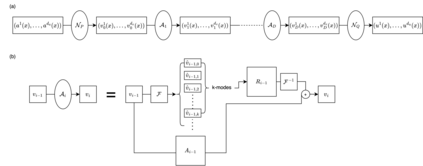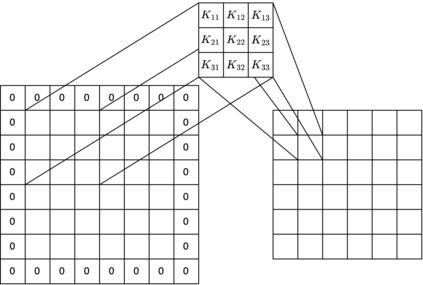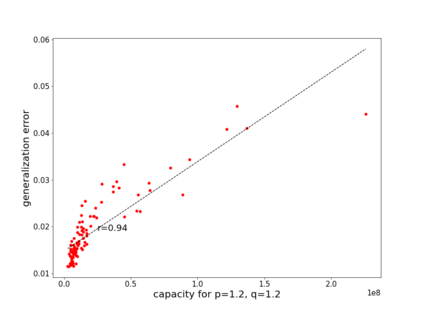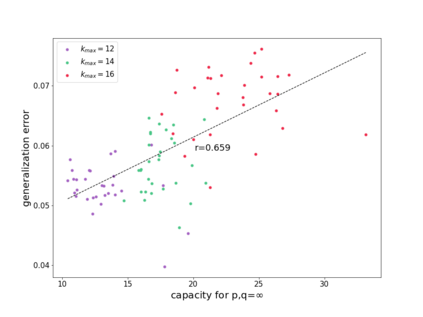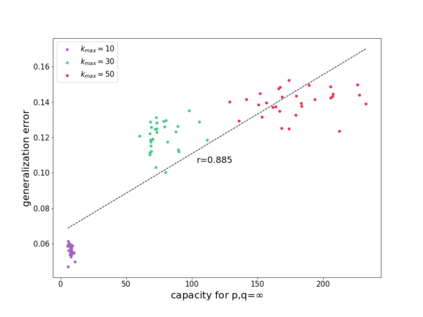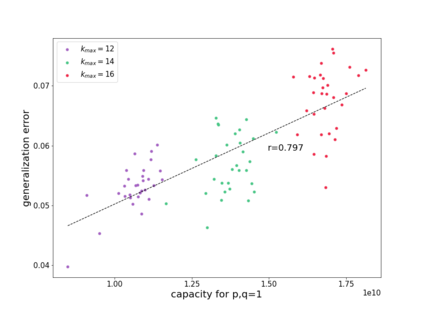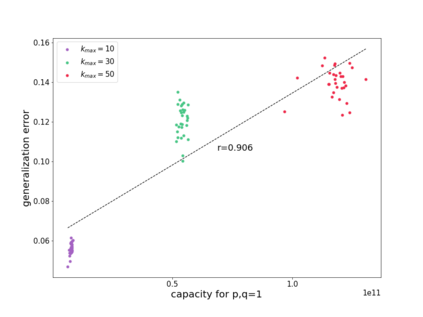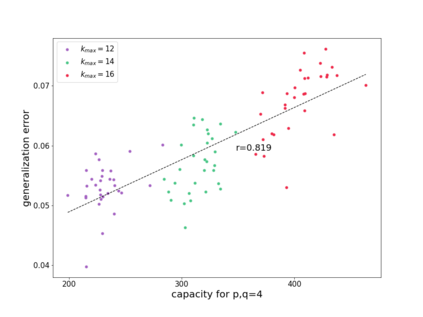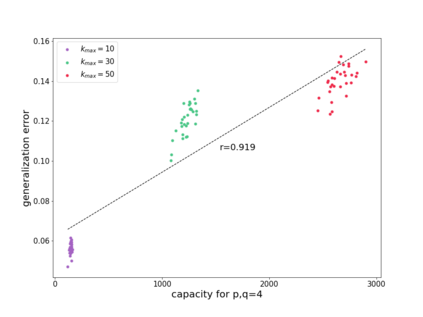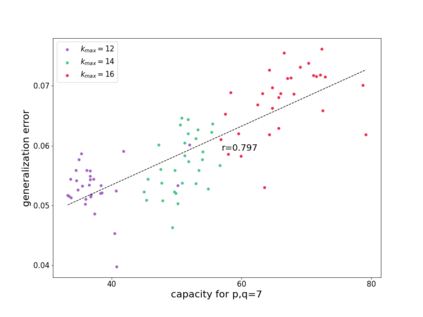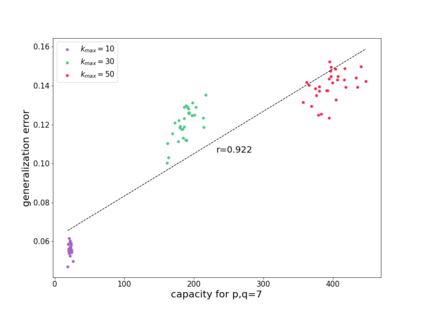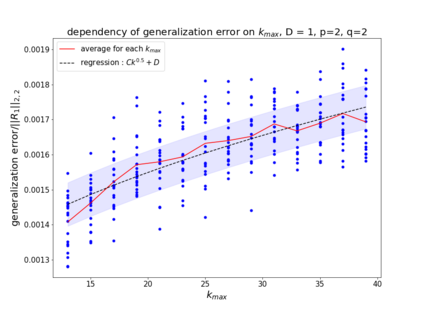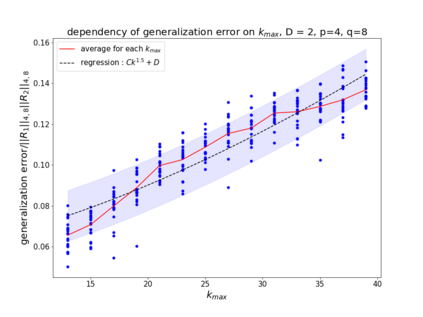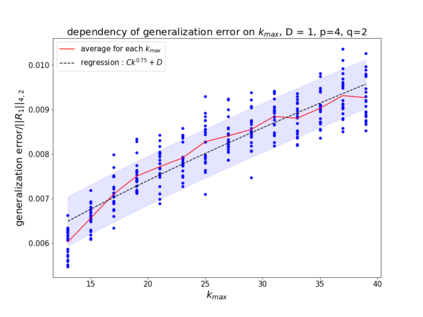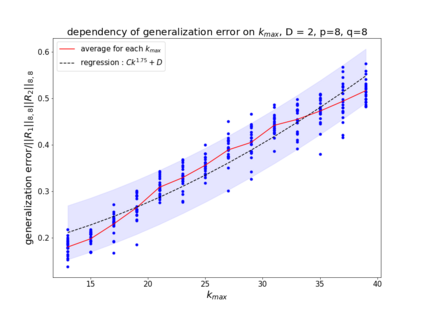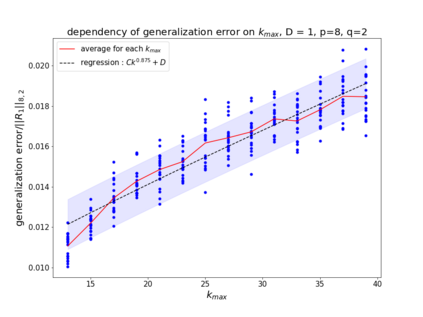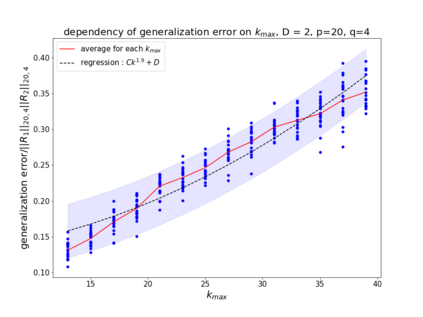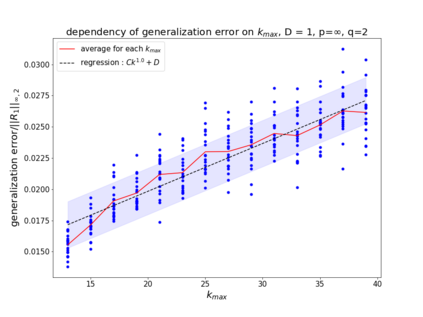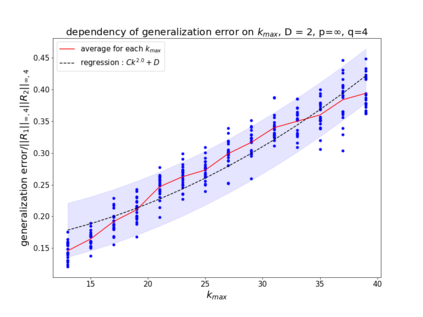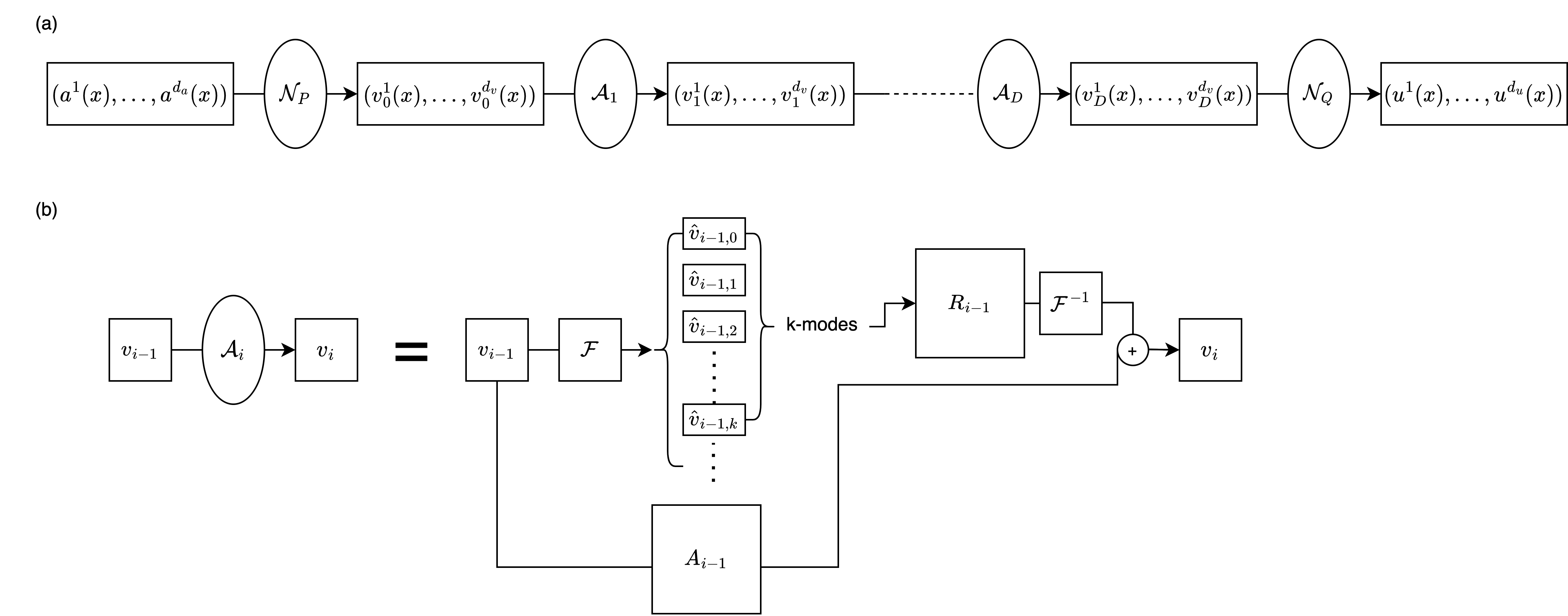A Fourier neural operator (FNO) is one of the physics-inspired machine learning methods. In particular, it is a neural operator. In recent times, several types of neural operators have been developed, e.g., deep operator networks, Graph neural operator (GNO), and Multiwavelet-based operator (MWTO). Compared with other models, the FNO is computationally efficient and can learn nonlinear operators between function spaces independent of a certain finite basis. In this study, we investigated the bounding of the Rademacher complexity of the FNO based on specific group norms. Using capacity based on these norms, we bound the generalization error of the model. In addition, we investigated the correlation between the empirical generalization error and the proposed capacity of FNO. From the perspective of our result, we inferred that the type of group norms determines the information about the weights and architecture of the FNO model stored in the capacity. And then, we confirmed these inferences through experiments. Based on this fact, we gained insight into the impact of the number of modes used in the FNO model on the generalization error. And we got experimental results that followed our insights.
翻译:Fourier神经操作器(FNO)是物理学启发型机器学习方法之一,特别是它是一个神经操作器。近些年来,已经开发出几种类型的神经操作器,例如深操作器网络、图形神经操作器(GNO)和多波乐操作器(MWTO)。与其他模型相比,FNO具有计算效率,可以不受一定限制地在功能空间之间学习非线性操作器。在这个研究中,我们根据特定群体规范调查了FNO的Rademacher复杂性的界限。利用基于这些规范的能力,我们约束了模型的普遍错误。此外,我们从我们的结果的角度调查了经验性一般化错误与FNO拟议能力之间的相互关系。我们推断,与我们所储存的FNO模型的重量和结构相比,该类型规范确定了信息。然后,我们通过实验确认了这些推论。基于这一事实,我们深入了解了FNO模型在一般化错误方面所使用的模式数量的影响。我们采用了实验结果。

